 T. Collins said ...
T. Collins said ... The government recognizes two distinct classes of citizens: a state Citizen and a federal citizen.
The government recognizes two distinct classes of citizens: a state Citizen and a federal citizen.1) A state Citizen, also called a de jure Citizen, is an individual whose inalienable natural rights are recognized, secured, and protected by his/her state Constitution against State actions and against federal intrusion by the Constitution for the United States of America.
2) A federal citizen, also called: a 14th Amendment citizen, a citizen of the United States, a US citizen, a citizen of the District of Columbia, has civil rights that are almost equal to the natural rights that state Citizens have. I say almost because civil rights are created by Congress and can be taken away by Congress.
Federal citizens are subjects of Congress, under their protection as a "resident" of a State, a person enfranchised to the federal government (the incorporated United States defined in Article I, section 8, clause 17 of the Constitution). The individual States may not deny to these persons any federal privileges or immunities that Congress has granted them.
This specific class of citizen is a federal citizen under admiralty law (International Law). As such they do not have inalienable common rights recognized, secured and protected in the Constitutions of the States, or of the Constitution for the United States of America, such as "allodial" (absolute) rights to property, the rights to inheritance, the rights to work and contract, and the right to travel among others.













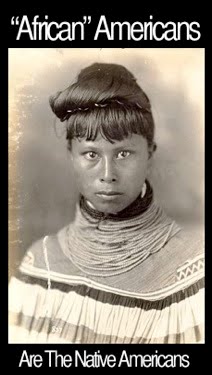




























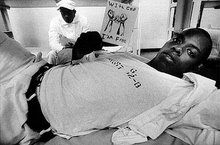
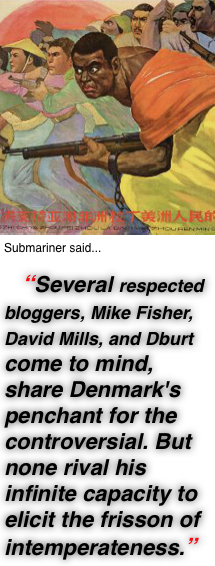




















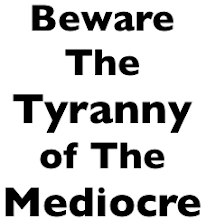










































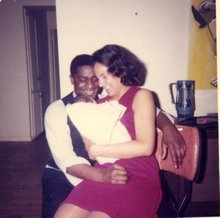




10 comments:
Ah DV, another heavy weight post. So, are most so called "black people" 14th amendment citizens or Federal citizens? Who are state citizens? Right now "states rights" are being spoken up by those opposed to the "healthcare" plan. Just the word sound "states rights" raises the hackels of civil rights Negros. From the gist of this post "states rights" rights are a beneficial thang. Should we be re-viewing the meaning of "states rights" or am I missing something?
Now you talking E.
That's exactly the point.
Negros have been conditioned to associate "States Rights" with racism.
Negros who fell for the Hegelian Head Fake still think of the Federal Government as their savior ... as their protector from insane racist whites who would cast them all into slavery given the chance.
The image of Union soldiers in Blue Uniforms routing the Confederate rebels and freeing poor downtrodden blacks one plantation at a time is embedded in their brains like a YouTube video.
They still herald paper legislation like The Emancipation Proclamation ... as if it has any real value.
Any government that can "proclaim" you free ... can also "proclaim" you a slave.
If you predicate your freedom upon acts of Congress (14th Amendment etc.) you will always be a ward of that Congress.
Not until black people realize that the avuncular Federal Government that sent troops to Alabama to protect little black girls who for some insane reason wanted to attend all white schools (at gun point) ... has evolved from a benevolent uncle to a predatory prison warden will they appreciate the importance of unalienable rights.
Exactly! The lack of full understanding about this country's history. In fact the headfakes by certain Negros, continue to blind the 85's. Just look at the words Emancipation Proclaimation. Proclaiming that you move from one hand to another. There is nothing about Liberty in those words.
Peace!
The crew is strangely silent on this one DV.
There are three kinds of citizens in America. However, the people of America have only been told about one. We have purposely been kept ignorant about the other two. The first citizenship that a person can hold in this country is to be a citizen of the United States. That is what we are all told that we should be. There is a second one, and that is to be a citizen of the United States of America, which is totally different. A legally, constitutionally established difference in a court of law. If you are citizen of the United States, you are not a citizen of the United States of America. When you understand that this country was founded and the constitution was written, it was based on something called international maritime admiralty law. We call this law today, world law. The World Court is what the United Nations operates under and is international maritime admiralty law today. Our government was founded as a business corporation, as a company. All corporate law says that you have to have a president and a vice president. That is why we have a President and a Vice President. We are told that we have the right to elect, and that is true, but we don't have a right to select, because the corporations decide who is going to run the business. We are experiencing that dilemma right now, in that we can elect, but we cannot select. There is a very real difference in where the power is, and in thinking we know what is going on in our national elections. We have been given the candidates that the corporations selected, of whom they want us to elect.
— Jordan Maxwell; Matrix of Power
On to the next one-Jay Z
Part Deaux
People vs. Citizen
LEARN ABOUT PEOPLE FIRST-
The Preamble does not specifically define the word "People." Nevertheless, the definition becomes apparent in the context of the other words and prior history.
HISTORY
Before the United States existed, there was no legal government. A group of representatives, acting "in the name and by the authority of the good people of these colonies," declared the independence of the colonies from the British Crown and the state of Great Britain.
From the beginning, in the 1776 Declaration of Independence, the people were acknowledged as the source of authority, i.e. the sovereignty which authorized the Declaration of Independence.
Next came the 1778 Articles of Confederation. The states that existed by the authority of the people, created those Articles while in Congress assembled. That didn't work as well as expected.
In 1787 the people themselves came forth "to ordain and establish this Constitution for the United States of America" [see Preamble]. On September 17th, 1787, the states held a convention and all those present unanimously joined in. [see last paragraph of U.S. Constitution]
So, in 1787, unanimous concurrence was achieved and the Constitution was born, later to be ratified.
PREAMBLE
"We the People of the United States, in Order to form a more perfect Union, establish Justice, insure domestic Tranquillity, provide for the common defense, promote the general Welfare, and secure the Blessings of Liberty to ourselves and our Posterity, do ordain and establish this Constitution for the United States of America."
STRUCTURE OF PREAMBLE
TRUSTOR: We the People [trustors]
VENUE: of the United States
PURPOSE: in Order to form a more perfect Union, establish Justice, insure domestic Tranquillity, provide for the common defense, promote the general Welfare, and secure the Blessings of Liberty
BENEFICIARY: to ourselves and our Posterity,
TRUSTEE: for the United States of America. [trustee]
ANALYSIS OF PREAMBLE
The Preamble defines the context in which the remainder of the Constitution must be interpreted. Most of it is self explanatory. Here's an explanation that points to popular sovereignty:
After the Declaration of Independence, but before the ordainment and establishment of the Constitution, the people of the United States pretty much handled their own affairs using the common law. They were not subject to any higher authority other than the authority of the common law as administered by the people themselves (self governance). Although the states did exist, they only existed by the authority of the people. Every man was a king, and every woman a queen--and none had any subjects. Upon declaring our independence, we all became sovereigns and members of the peerage (nobility).
"The people of this State, as the successors of its former sovereign, are entitled to all the rights which formerly belonged to the King by his prerogative. Through the medium of their Legislature they may exercise all the powers which previous to the Revolution could have been exercised either by the King alone, or by him in conjunction with his Parliament; subject only to those restrictions which have been imposed by the Constitution of this State or of the U.S."
The enabling actions in the Preamble are significant because there is simply nothing in the use of those words to imply that the People relinquished any of their own power and authority. The People declared the law (ordain) without taking away from themselves the authority to declare law again in the future. The People established the Constitution without taking away from themselves the authority to establish anything else in the future. In other words, the people gave birth to the Constitution without giving up any of their own power and authority.
What was before, continues to be so today.
Level II -cont
From the context of the Preamble, one may conclude that the laws of the United States do not apply to People. The People, as ordainers and establishers of the country are sovereigns of the country, may not be involuntarily subjected to the laws of the United States.
In order for the government to subject People to its law it is necessary for the People to relinquish their sovereignty. Sovereignty is a natural right which cannot lawfully be relinquished involuntarily. Any removal of sovereignty must be accomplished voluntarily by the subject himself.
DEFINITION OF CITIZEN OF THE UNITED STATES
HISTORY
Before ratification of the Amendment XIV , there was no legal definition of the term "citizen of the United States." The term was used, but only generally. After the Civil War the slaves were freed but there was no legal basis to recognize them as having any rights. Amendment XIV partially solved that problem.
"Free the slaves," was the rallying cry combined with the Civil War that resulted in Amendment XIV. Amendment XIV created a new class of person called "citizen of the United States." Any ex-slave could now claim citizenship, and, by the way, so could any of the People if they so chose to do. Amendment XIV made possible the voluntary relinquishment of personal sovereignty.
It was also during the mid 1800's that the various governments took control of the school systems. The curriculum shifted from civics (the study of natural rights and common law) to American government (the study of civil privileges and statutory law). Emphasis was also refocused on "good citizenship". To blunt the people's perception, the civil privileges were called civil rights. The transition from teaching "natural rights" to teaching "civil rights" took about 100 years (from the 1850's to the 1950's). During the 1950's the school systems changed the courses named from "Civics" to "American Government." Hardly anyone now is aware of the subject of civics as a school course.
The phrase, "citizens of the United States," is defined in the Constitution for the United States of America, Amendment XIV:
AMENDMENT XIV
Section 1. "All persons born or naturalized in the United States, and subject to the jurisdiction thereof, are citizens of the United States and of the State wherein they reside. No State shall make or enforce any law which shall abridge the privileges or immunities of citizens of the United States; nor shall any State deprive any person of life, liberty, or property, without due process of law; nor deny to any person within its jurisdiction the equal protection of the laws."
Section 5. "The Congress shall have the power to enforce, by appropriate legislation, the provisions of this article."
STRUCTURE OF AMENDMENT XIV
WHO: All persons
QUALIFICATION:
(A) born or naturalized in the United States, and
(B) subject to the jurisdiction thereof
PURPOSE: No State shall make or enforce any law which shall abridge the privileges or immunities of citizens of the United States; nor shall any State deprive any person of life, liberty, or property, without due process of law; nor deny to any person within its jurisdiction the equal protection of the laws."
As discussed above, the People are sovereign. The People are not subject to the jurisdiction of the federal government, even though they are born in the United States.
level II-still continued :)
Amendment XIV inverts the relationship. One of the qualifications to be a citizen of the United States is that one must be born or naturalized in the United States. Another qualification is that one must be, "subject to the jurisdiction thereof." It is not possible to be a citizen of the United States without being born or naturalized in the United States and subject to the jurisdiction thereof. But, if you are born or naturalized, and if you are subject to the jurisdiction, then you automatically qualify as a citizen of the United States.
From the point of view of the federal enforcers, the qualifications are worked in reverse. They reverse-interpret Amendment XIV as saying that if you say you are a citizen of the United States, then that automatically means you are totally subject to its jurisdiction [and have been born or naturalized]. This opinion is not shared by the judicial branch. See 14 C.J.S. 426, 430:
The particular meaning of the word "citizen" is frequently dependent on the context in which it is found[25], and the word must always be taken in the sense which best harmonizes with the subject matter in which it is used[26].
"One may be considered a citizen for some purposes and not a citizen for other purposes, as, for instance, for commercial purposes, and not for political purposes[27]. So, a person may be a citizen in the sense that as such he is entitled to the protection of his life, liberty, and property, even though he is not vested with the suffrage or other political rights[28].
In any case, if you fail to object to the government's view of citizenship, then you will most certainly be subjected to the laws of the government. That means no rights, only privileges. To see a list of privileges granted or denied to the citizens (there is no list for the People's natural rights because the People automatically have all rights), see People's rights vs citizen's rights
ONE OF THE PEOPLE OR ONE OF THE CITIZENS?
The first issue to be resolved in any court proceeding is that of jurisdiction. Does the one entity have jurisdiction over the other entity? One should never go into court without a clear understanding as to whether he is there as a citizen, or there as one of the people.
If you claim you are a citizen of the United States, then it is strongly implied (though not necessarily true) that you are subject to the laws of the United States. On the other hand, if you are one of the People, then it is legally implied that you are a legal king, with a sovereignty superior to that of the United States, and subject only to the common law of the other kings (your peers). In short: the People are superior to the government, the government is superior to the citizens. That is the hierarchy.
Final Level II
You can't get it in the sort version. :)
PEOPLE ---> GOVERNMENT ---> CITIZENS
As a king you "are entitled to all the rights which formerly belonged to the King by his prerogative." You can do what you want to do when you want to do it. You have your own property and your own courts. There is no limit as to what you may do other than the natural limits of the universe, and the sovereignty of a fellow sovereign. You should treat the other sovereign in accordance with the Golden Rule, and at the very least must never harm him. Your sovereignty stops where the other sovereignty begins. You are one of the owners of the American government, and it is their promise that they will support your sovereignty (i.e. they have promised to support the Constitution and protect it from all enemies). You have no allegiance to anyone. The government, your only [public] servant, has an allegiance to you.
As a citizen, you are only entitled to whatever your sovereign grants to you. You have no rights. If you wish to do something that would be otherwise illegal, you must apply for a license giving you special permission. If there is no license available, and if there is no specific permission granted in the statutes, then you must apply for special permission or a waiver in order to do it. Your only allegiance is to your sovereign (the government), and that allegiance is mandated by your sovereign's law (the government, though not absolutely sovereign, is sovereign relative to you if you claim to be a citizen of the sovereign).
Here is a typical example:
As one of the People you have a right to travel, unrestricted, upon the public highways. You have right to carry guests with you in your automobile. You have a right to own a gun and that right shall not be impaired by your servant, the government. You have a right to a grand jury indictment and a trial by jury, that is a trial directly by the people, not the government.
As one of the citizens, you may not travel by automobile unless you are either a licensed motor vehicle driver, or you are a passenger with permission to be on board. Gun ownership is a privilege subject to definition and regulation. You do not have a right to a jury trial in all cases, and no right to grand jury indictment--a trial is a trial by the government, not the people.
Teach Wax Teach!
I've yet to read the comments but I think we should have more posts and really go deeper on this subject...
Post a Comment